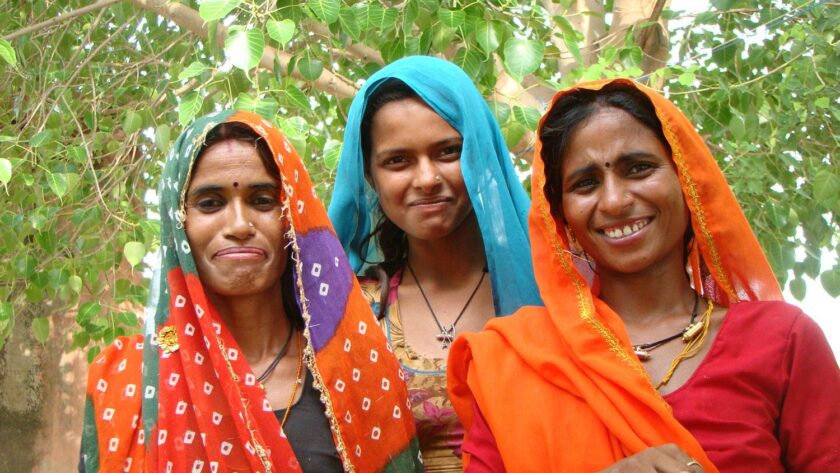Lucknow: Lucknow, the capital of Uttar Pradesh, has seen significant growth in healthcare infrastructure over the past decade. New hospitals, diagnostic centers, specialized clinics, and healthcare initiatives have greatly expanded the city’s ability to provide high-quality medical care. However, despite these advancements, there remains a critical need for increasing public awareness regarding the importance of seeking timely medical treatment. Many individuals in the city still hesitate or delay seeking medical help, often resulting in preventable complications or worsening conditions.
The Growth of Healthcare Facilities in Lucknow
Over the past few years, Lucknow has witnessed a remarkable transformation in its healthcare sector. New-age hospitals and healthcare facilities are offering specialized treatments in areas such as cardiology, oncology, neurology, orthopedics, and nephrology. Some of the leading hospitals in the city include King George’s Medical University (KGMU), Sanjay Gandhi Postgraduate Institute of Medical Sciences (SGPGI), and Ram Manohar Lohia Hospital. The private sector has also stepped up, with institutions such as Medanta Lucknow, Max Hospital, andHealth City Vistaar catering to the increasing demand for specialized medical care.
Furthermore, the government has introduced several initiatives, such as the Ayushman Bharat scheme, aimed at providing affordable healthcare to the underprivileged sections of society. Despite these developments, the challenge remains in bridging the awareness gap, ensuring that people make full use of the available healthcare services.
The Disconnect Between Healthcare Access and Public Awareness
While access to healthcare services has expanded, many residents in Lucknow still face barriers in accessing timely treatment. These barriers often stem from a lack of knowledge, fear, or cultural stigmas related to seeking medical help. For instance, many people in rural and semi-urban areas of the city may not be fully aware of the advanced treatments available for conditions such as diabetes, hypertension, or cancer. This can lead to people neglecting symptoms and delaying treatment, which can have disastrous consequences.
Moreover, there is often a lack of awareness regarding preventive care. While major healthcare facilities focus on providing curative treatment, less emphasis is placed on educating the population about the importance of regular health check-ups and early intervention. This contributes to people ignoring early warning signs of chronic diseases, leading to more severe health issues in the long run.
The Consequences of Delayed Medical Treatment
Delaying or avoiding medical treatment can have serious consequences. Chronic diseases such as diabetes, hypertension, and kidney failure can be effectively managed if diagnosed early. However, untreated or poorly managed conditions can lead to complications like heart attacks, strokes, and kidney failure, requiring more expensive treatments or even surgery.
For instance, a study conducted by the Indian Council of Medical Research (ICMR) in 2020 showed that nearly 90% of people with hypertension were unaware of their condition, and almost 80% of them did not seek treatment until they experienced a life-threatening emergency. This delay in diagnosis and treatment increased the risk of heart disease and stroke.

Similarly, in the case of cancer, early detection can significantly improve the chances of survival.
The Role of Healthcare Campaigns in Raising Awareness
To address the problem of delayed treatment, several organizations are working to raise awareness and educate the public about the importance of early detection and intervention. Health campaigns run by the government and NGOs are crucial in spreading the message of preventive care.
For example, the Uttar Pradesh government’s ‘Healthy UP, Happy UP’ initiative focuses on providing free health check-ups, distributing medicines, and raising awareness about chronic diseases. Additionally, various health camps are organized to educate people about the importance of regular screening for diabetes, hypertension, and cancer. These initiatives are crucial for informing the public about the importance of timely treatment.
Moreover, awareness programs regarding mental health are gaining momentum, with more focus being placed on psychological well-being. Mental health issues, once considered taboo, are being discussed openly in public forums, helping to break the stigma surrounding seeking help for mental health issues.
Community Engagement: The Key to Effective Healthcare Awareness
For healthcare awareness campaigns to succeed, it is crucial to engage the community at a grassroots level. Local healthcare providers, community leaders, and influencers can play a significant role in spreading the message about the importance of seeking timely medical care. Schools, colleges, and workplaces are also key venues for reaching a wide audience and educating people about basic health care. Additionally, social media platforms have become a valuable tool for spreading health-related information. Public service announcements, informative videos, and expert talks on social media channels can help demystify healthcare and encourage people to consult doctors sooner rather than later.
Emergency Numbers in Lucknow
In addition to raising awareness about preventive healthcare, it is essential to make people aware of the emergency services available in Lucknow. A lack of knowledge regarding emergency numbers can cause unnecessary delays in seeking help during medical emergencies. Here are the key emergency numbers for medical assistance in Lucknow:
- Ambulance (Dial 108): The 108 ambulance service is available round the clock to assist in medical emergencies, including accidents, cardiac arrest, strokes, and other urgent health conditions.
- Police (Dial 100): In case of accidents or emergencies requiring law enforcement intervention, dial the police emergency number.
- Fire Services (Dial 101): For fire-related emergencies, dial 101 to get immediate help from the fire department.
- Women’s Helpline (Dial 1090): For issues related to women’s safety or emergencies, this helpline can provide immediate assistance.
- Poison Control Helpline (Dial 1800 11 69 61): For poisoning emergencies, immediate advice and assistance can be obtained by calling this toll-free number.
- District Hospital (Dial 0522-2233242): Contact the district hospital for emergency medical care, including accidents, surgeries, and critical care.










